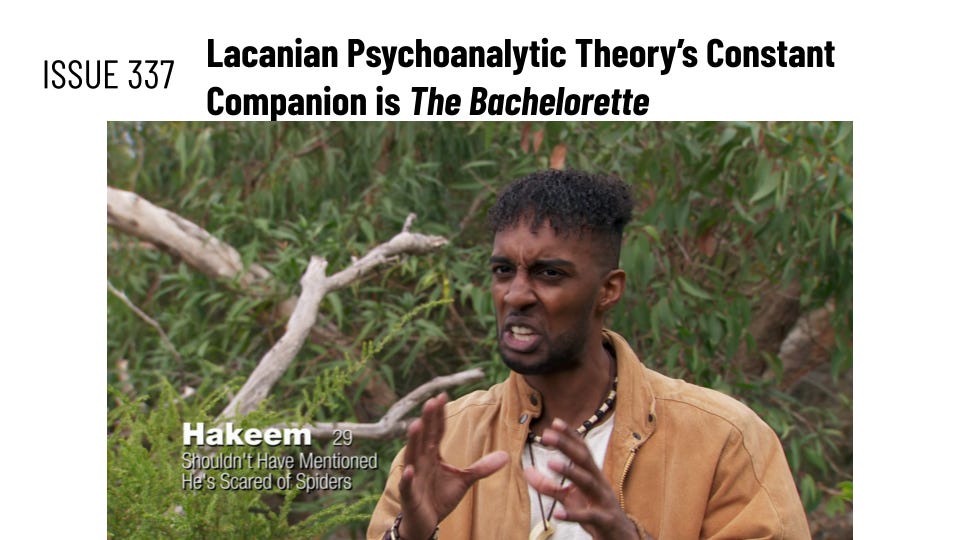Issue #337: Lacanian Psychoanalytic Theory's Constant Companion is The Bachelorette
I love movies. I saw three this week, all from this year: The Watchers, Longlegs, and Land of Bad. They all had their high points, but you might have a hard time guessing the one I liked the least.
The Watchers, as a relative critical failure, is entirely unjustified. I am a big fan of M. Night Shyamalan, even films like Old (2021) and Knock at the Cabin…



